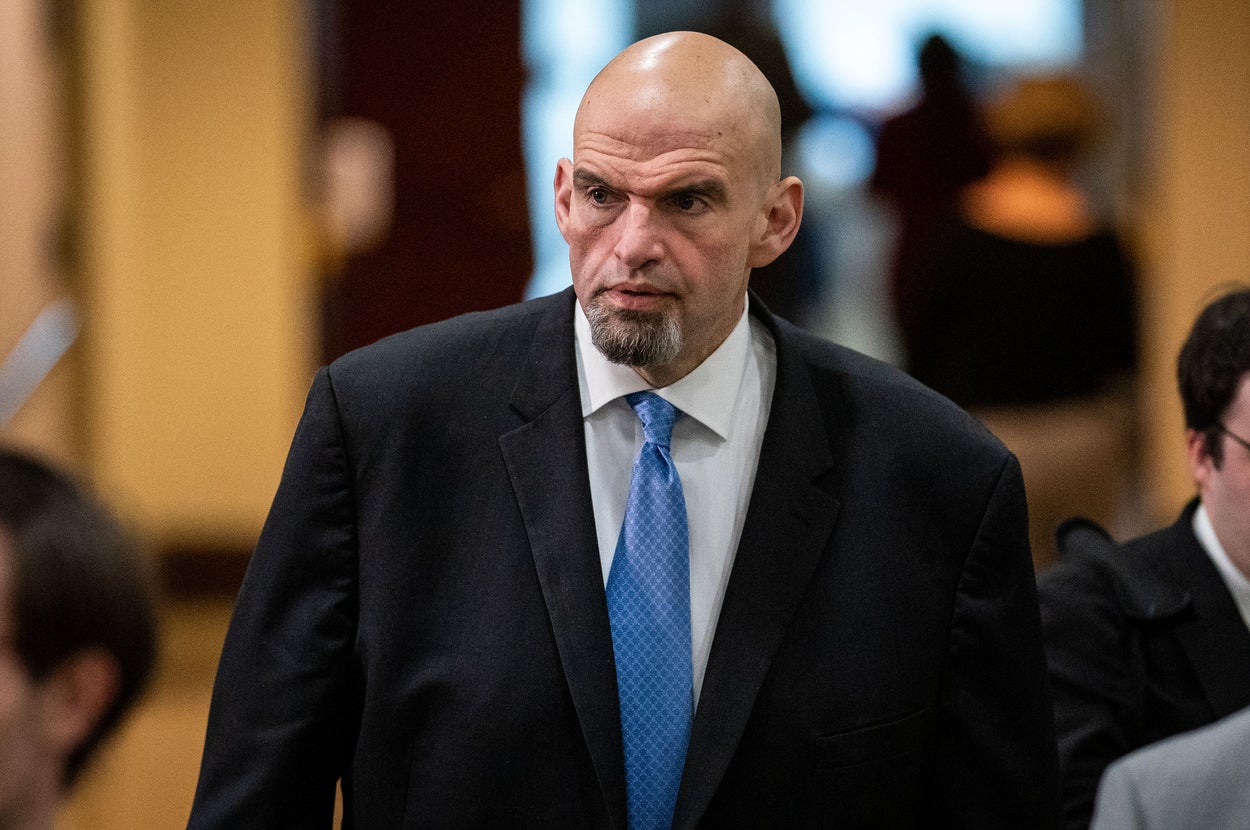In a recent development that has drawn considerable attention, Senator John Fetterman of Pennsylvania has taken a significant step in prioritizing his mental health by checking himself into the Walter Reed National Military Medical Center. This decision came after his ongoing battle with clinical depression intensified over recent weeks, necessitating professional intervention. The move underscores a growing acceptance and acknowledgment of mental health issues in even the highest echelons of political leadership, reflecting broader societal changes towards mental health awareness.
Sen. Fetterman, a Democrat, has had a history of depression, with periodic episodes throughout his life. However, according to his office’s statement released on Thursday, the condition had worsened to a severe degree in recent weeks, prompting urgent medical attention. The issue of mental health is often stigmatized, but Fetterman’s forthright approach in seeking help illustrates a commendable effort to confront this challenge head-on.
His decision to seek help was precipitated by a consultation with a Congressional physician who, upon evaluating him on Monday, strongly recommended in-patient care at the renowned Walter Reed Medical Center, a top-tier facility known for providing comprehensive treatment and support for a wide range of health issues, including mental health disorders.
Understanding the gravity of his situation and acknowledging his need for professional help, Sen. Fetterman agreed to the physician’s recommendation and checked into the facility on a voluntary basis. The team of healthcare professionals at Walter Reed quickly began providing him with the necessary care to address his depressive symptoms, aiming to restore his mental well-being.
Reflecting on their interactions and the initial assessments, the medical team at Walter Reed has expressed confidence in the positive outcome of the treatments being administered. They reassured his family and the public that Sen. Fetterman was receiving the best possible care and that they expect him to fully recover and return to his duties and daily life activities soon.
Amid this challenging period, Gisele Barreto Fetterman, Sen. Fetterman’s wife, has been a pillar of support. She shared the statement regarding her husband’s health on social media, highlighting his reluctance to focus on his personal struggles over the past year. Her message conveyed a mix of concern and pride, illustrating her admiration for his courage in seeking help amidst the challenges he faced. She emphasized how important it is for individuals, regardless of their status or position, to acknowledge their health needs and take decisive steps towards recovery.
Sen. Fetterman’s public disclosure of his mental health condition is not just a personal story but also serves as a powerful catalyst in the ongoing conversation about mental health, especially in professional and high-pressure environments. By sharing his experience, he helps in destigmatizing mental health issues, encouraging others to recognize and address their conditions without fear of judgment or repercussions.
His actions also bring to light the critical role of healthcare professionals in recognizing and addressing mental health needs. The timely intervention by the Congressional physician and the subsequent care provided by Walter Reed’s staff exemplify the fundamental need for accessible, responsive, and comprehensive healthcare systems that prioritize mental well-being.
Looking forward, while the immediate focus remains on Sen. Fetterman’s recovery, this incident highlights broader implications for mental health policies and the need for supportive frameworks in workplaces, including highly demanding settings such as public service and governance. It calls for continued and enhanced efforts to provide mental health support, reduce stigma, and foster an environment where seeking help is seen as a sign of strength rather than weakness.
As society continues to evolve in its understanding and approach to mental health, stories like that of Sen. Fetterman will hopefully become less of an exception. The goal is a future where everyone has the access, encouragement, and support to manage their mental health proactively and with dignity, ensuring no one has to suffer in silence or go without necessary care. Sen. Fetterman’s journey is a reminder of the human aspect behind public figures and the universal nature of mental health challenges. It’s a call to action to everyone, from policy-makers to individuals, to keep mental health at the forefront of public discourse and personal priority lists.









